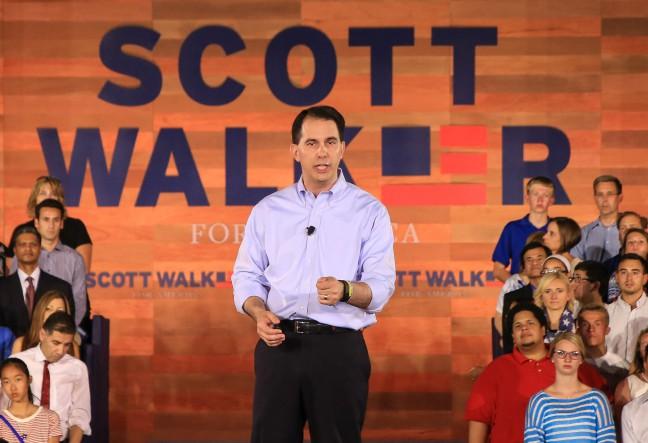Jobs seem to be the bane of Gov. Scott Walker’s time in office. On the 2010 campaign trail, Walker promised to create 250,000 jobs during his first term in office. He fell 100,000 jobs short. This was due to Walker’s plans on job creation, which emphasize the making of a business-friendly environment.
While creating a utopia for businesses seems like the best way to get employers to come into the state, a recent study suggests pandering to businesses is a waste of time because 87 percent of new job growth occurs from businesses already in the state.
This message is counter to Walker’s ideas on the economy and businesses. According to his website, Walker wants a friendly business climate, which has happened — Wisconsin has moved from 41st in 2010 to 24th currently, according to CEO Magazine’s Best States for Business list.
This would be great news, but this type of attitude only targets businesses located outside Wisconsin. A more balanced approach, like one that both helps startups and attracts new businesses, would be preferred. But Walker has given all of his political favor to attracting outside businesses, a Kauffman Index study found, showing that Wisconsin is last in the nation for startups.
But that is just for new startup businesses. Small businesses already exist in Wisconsin. Walker’s plan, as per his website, for them includes “reducing the overall tax burden in the state, passing aggressive tort reform legislation and cutting red tape in order to get government out of the way.”
Luring businesses in this way, through tax cuts and closures of loopholes, isn’t that effective. The Center on Budget and Policy Proposals’s startup study found these types of policies hurt small businesses because income tax cuts generally mean less money going to education, leading to an unprepared workforce for the businesses’ needs.
Given that most jobs are created in-state, Walker and the Wisconsin Legislature should shift focus from appealing to out-of-state businesses and implement policies proven to foster in-state job growth.
While there isn’t a clear consensus as to what most effectively fosters startup and in-state businesses, there are two possible alternatives that can provide a means to this end.
The first is providing early-stage capital to startups and small businesses. Early-stage businesses are falling into a “financing gap,” where banks are not willing to loan to new businesses (seeing them as risky assets) and venture capitalist firms have moved investments from funding startups. The government can fill this role by debt financing, which is providing high-growth firms with a variety of financing schemes such as loans from individuals and banks as well as selling bonds and the extension of credit.
The other is a shift from top-down funding — the government handing out capital to businesses — to a collaborative culture of funding. Research shows local connections are better for small, new businesses if they receive a combination of the government expertise, venture capital (capital invested into a risky, new or expanding business project) and physical accommodations like office space and the businesses themselves. Having a forum that would pair investors with entrepreneurs could positively affect job growth.
This calls for a shift on what is considered a friendly business climate. Instead of focusing on poaching businesses from other states, self-investment should be embraced. Maybe to rekindle positive feelings with Wisconsinites, Walker should invest in Wisconsin’s businesses.
Aaron Reilly ([email protected]) is a freshman majoring in comparative literature and Russian.








